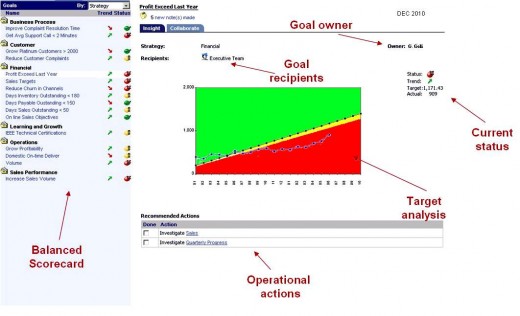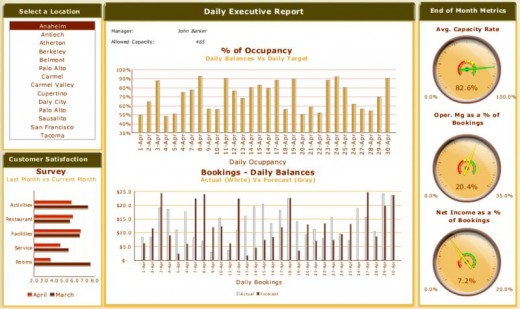Business Intelligence report types
Reporting
Organizations need to be able to access information quickly when needed so that they can empower their employees to make business decisions almost immediately. Organizations require intuitive tools so that business managers can quickly create professional looking reports rather than going to IT and getting sucked into a very iterative time-consuming process. They need to be able to reuse and reduce duplication as much as possible so that organizations can focus on using their talent in the best possible manner. And finally, they need role-specific tools to match user needs.
Report types examples



Report types
Managed reporting - the characteristics of this report are the following: IT develops a report, i.e. a professional author develops a report and distributes that report on a scheduled basis to a number of stakeholders across an organization. Those stakeholders receive the reports and then through the world of prompting and filtering are able to customize that report so that they get their perspective on the data.
An example of this type of report is sales, sales reports garnered from the website. So you can imagine that an IT resource sends out an HTML link on a weekly basis. You click on that HTML link. You get the broad global sales that were generated on the website. Through prompts and filters you can determine exactly how your specific business unit or business region did that week for sales. And it delivers a very personalized experience based on a single report entity. Typically, the author of this type of report would be somebody who sits in an IT department, i.e., a professional report developer. The users or the consumers of this report is really anybody across an organization who would benefit from this type of personalized information to make better decisions within their organization.
Transactional and operational reports provide the capability to report off of an operational database, to provide a critical point in time picture of performance or KPI or performance indicators based on that operational database. Typically, the users or the consumers of this type of report are operational and line managers who need to have an up to the minute view on that operational database. The other consumers of this report would be senior managers. The author of this report would be a professional author, again someone likely sitting within the IT department.
A statement style report is a financial report. It details financial data, expenses, assets, liabilities. It’s all generated using powerful cross tab capabilities and really gives business managers and senior managers visibility into the financial health across their business, their business unit or their particular product line. Typically the author of this is somebody who sits within the line of business. Some of the titles for example are business or financial analysts and the data source would be a multi-dimensional data source.
A production report is a report typically run in large volumes and having a pixel-perfect design.
Ad-hoc report isn’t necessarily a report. The genesis of this style of report is the business manager needs to answer a critical business question. He or she would then go into our ad hoc reporting capability, churn the data and get an answer to that question. There’s a real flexibility with respect to the data elements, the styling and the formatting of that report. But that report may die at that point. Once the answer is actually found, that business manager may close that and that report will never resurface. Or, if there’s real relevance in that report or the business manager thinks other people would benefit from that report, that report can be sent around, scheduled to a number of stakeholders to get them to benefit from the ad hoc report.
A report like this needs to be very interactive and flexible; needs to be able to pull in data elements from a number of different sources; be able to format the report so that the business manager can quickly get answers to their business question. There’s a real self-service element here. People don’t necessarily want to get IT involved for a business question that a business manager may have. Typically, it revolves around financial information. You want to be able to see how much -- what was your product line, how much did it sell last year in a specific geographic region? So who are the users? They’re typically business managers or information workers. Who are the authors? Typically the same type of people. The challenge of bringing IT involved is really the delay. IT can’t turn reports around quickly. Typically the source of ad hoc reports is just to answer quick business questions and it’s not possible to wait weeks for the answer. For that reason, the author is typically the business manager.







